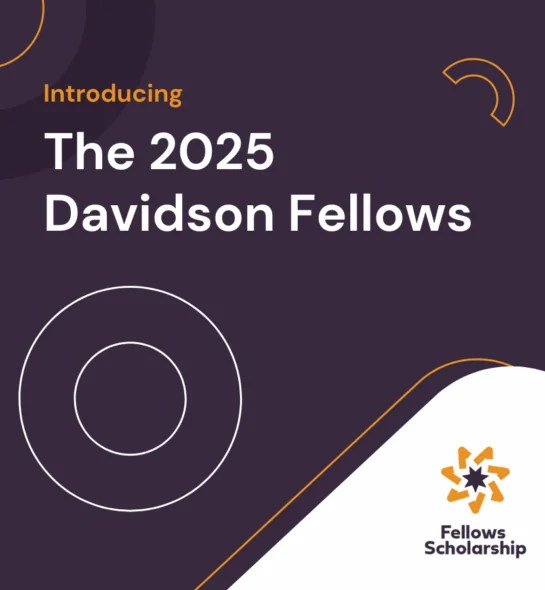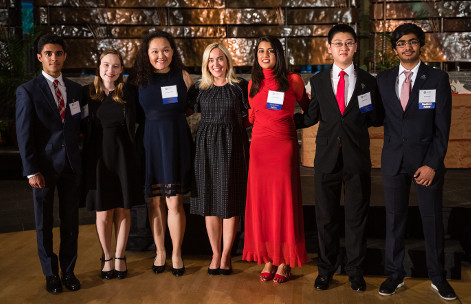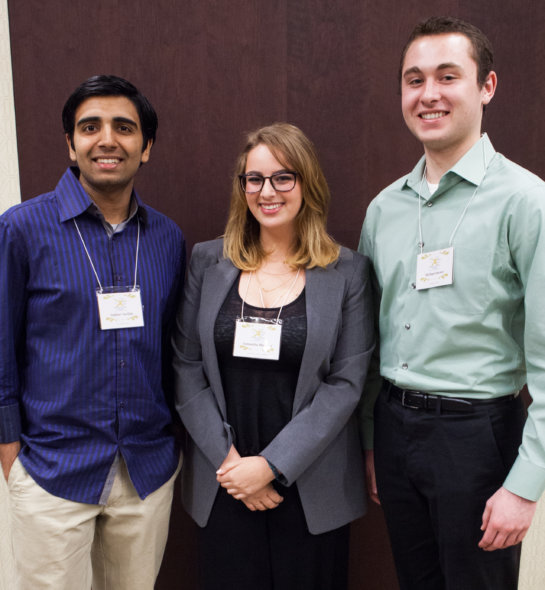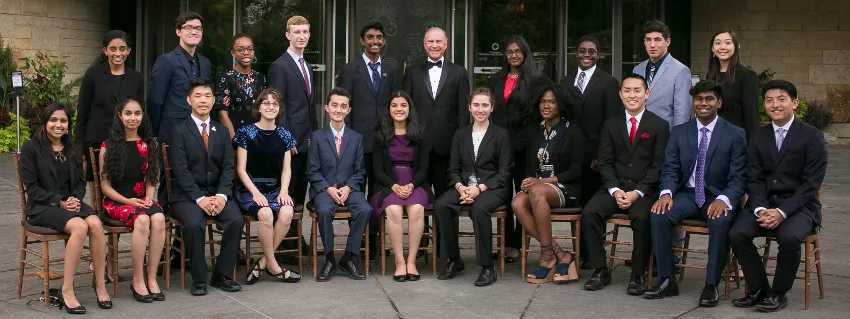Fellows Scholarship
A prestigious scholarship for high-achieving students
We award $100,000, $50,000 and $25,000 scholarships to gifted and high-achieving students, 18 years old or under, who have completed a significant piece of work.
The 2026 application is now available!
2026 Fellows Scholarship Information Session
Learn more about application categories, eligibility, project criteria and more!
Eligibility & FAQs
See how to be eligible for consideration as a Davidson Fellow.
Scholarship Categories
Application categories are Science, Technology, Engineering, Mathematics, Literature, Music, Philosophy and Outside the Box.
How to Apply and Tips
Detailed application process information.

2025 Fellows Announced
We are pleased to share this year's remarkable young people and their accomplishments. Join us in congratulating them!

Fellows

Featured Davidson Alum
"I'm honored to be part of a community as diverse and successful as the Davidson Fellows, which inspires me to pursue technical and creative endeavors at the highest level."
- Vaibhav Vavilala, 2013 Davidson Fellow (pictured left)
Frequently Asked Questions
Who is eligible to apply for the Davidson Fellows scholarship?
To be eligible for the Davidson Fellows scholarship, an applicant must:
- Applicants must be 18 or younger as of the application deadline to be eligible.
- Be a U.S. citizen residing in the United States, or a Permanent Resident of the United States residing in the United States, or be stationed overseas due to active U.S. military duty.
- Have completed a significant piece of work in one of the submission categories.
- Two person teams are eligible.
- Be able to demonstrate that the work is his or her own creation.
- Be able to attend an in-person event, with at least one parent or guardian, or virtual awards ceremony.
What is required to apply for a Davidson Fellows scholarship?
Each category has different requirements. Every applicant must submit the required elements outlined within their category of choice, plus two nominator forms and all of the Attachments. Applicants and their parents also must sign a statement of commitment that, if named a Davidson Fellow, the applicant and a parent or guardian will attend the award reception in Washington, D.C.
Do you have additional questions?
The Davidson Fellows are success stories - they're students who have resourcefully found ways to nurture their genius by seeking out mentors, relying on strong family support and working diligently to achieve their goals."

